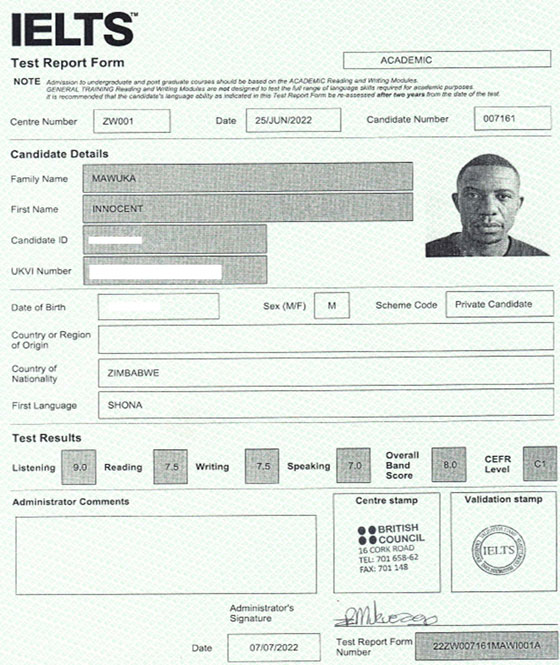Some people feel that learning best comes from one’s own mistakes; however, we at IELTS-Blog.com strongly believe that learning best comes from other people’s experiences.
If you’ve been reading the blog for the past few weeks, you probably remember Innocent from Zimbabwe, who got Band 8.0 in IELTS and won in the monthly results competition. We are fortunate to be able to share his top advice today.
Innocent said,

I would like to promptly acknowledge the fact that to most IELTS examination candidates the test represents a formidable hurdle in that dream career path. Understandably, it induces anxiety because of its importance. This is why test takers desperately need reliable educational material and support which you readily provide. Thank you!
My recommendations to other candidates? Practice, practice and more supervised practice. Practice is indispensable in this test. It gives the candidate a sense of preparedness which significantly lowers anxiety and makes the test a little more predictable and enjoyable, as opposed to being feared. This builds a positive mindset and gives one a feeling of being in control which I consider vital for any candidate. We can’t afford to be defeated mentally.
Undeniably, practice is even better when there is feedback, because you get confirmation of your progress and make necessary adjustments. This ultimately raises your band score.
I also implore those preparing for the exam to use a holistic approach. What do I mean? We all know that the test comprises of 4 skills (Speaking, Listening, Writing and Reading). Instead of viewing the four as separate and practicing them individually, I found it incredibly beneficial to use one part of the test to improve my skills in other parts of the test. For example, after a reading exercise I would use it to enrich my vocabulary pool and improve my writing by analyzing and copying the style in the reading text. It saves time and ensures that all the categories of the test are improved simultaneously. Similarly, a listening exercise can be used to further skills in speaking and other areas. Remember, there is a great deal of paraphrasing and the use of synonyms in IELTS.
To conclude, I believe practice, a holistic approach and positivity are the keys to success. You can do it!”


